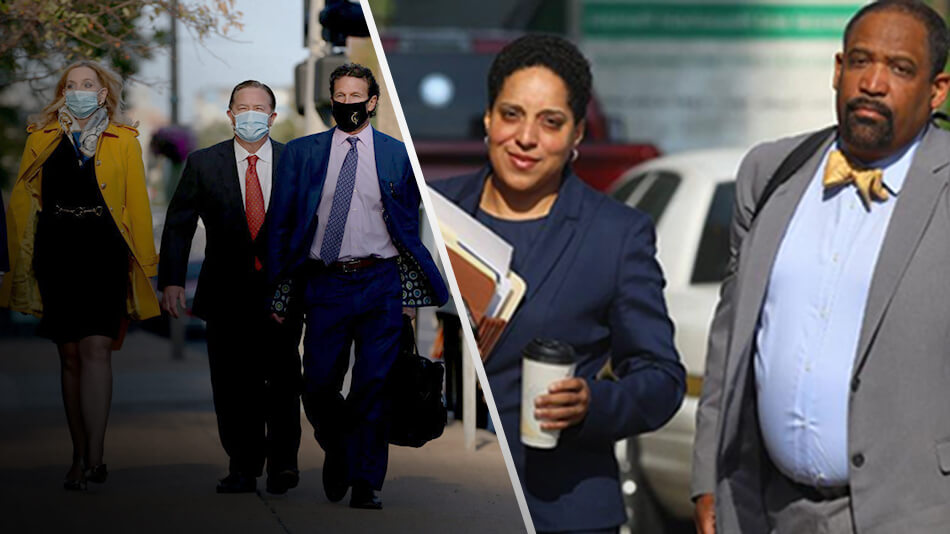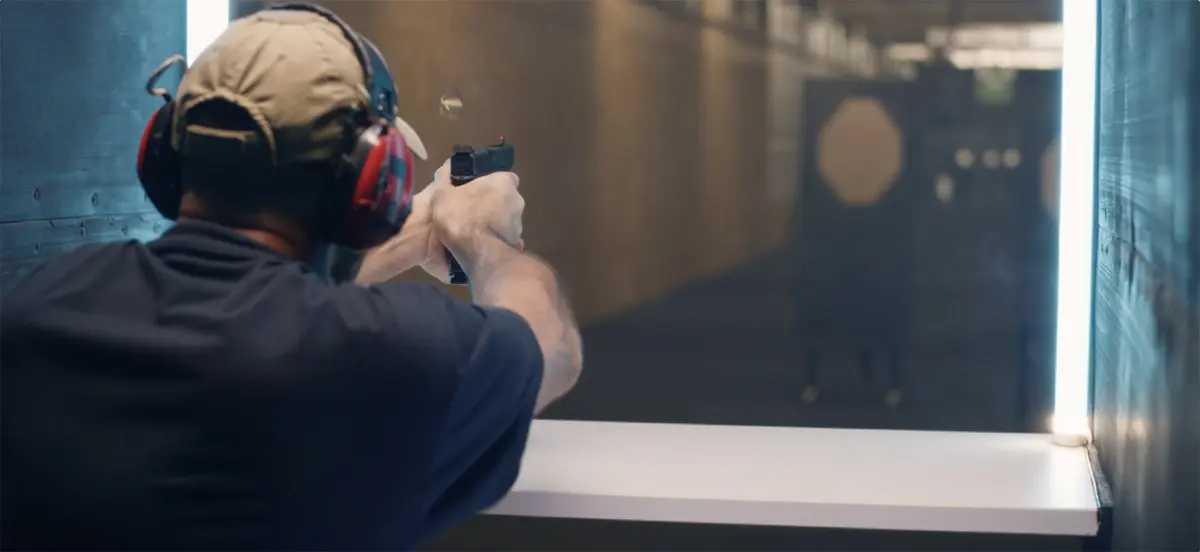
You’ve undoubtedly heard the long-established phrase “wheels of justice.” Have you thought about the many moving (often slowly moving) parts of the criminal justice system? Specifically, the people who work for the system. Who are these people and what is their role? Do they have a political agenda? And, what do they think of law-abiding gun owners? How could they impact your freedom as a law-abiding gun owner? Whether it is law enforcement officers, prosecutors, juries, or judges, these individuals make up our justice system for better or worse.
In this multi-part series, we examine the key participants in the criminal justice system, and we begin with prosecutors.
Given the importance of this role, let’s take a closer look at how prosecutors get into office, the power they have, how they keep it, and what it all means to law-abiding gun owners.
Gun Owners Beware!
First, it’s important to know that firearms owners arrested on gun charges can be at the mercy of their local prosecutors. Prosecutors may also have a politically motivated agenda, which could have an impact on their investigations and the charges they seek. It can be as simple as this: there are laws on the books, but there are also laws the prosecutor may want to selectively enforce.
So, How do Prosecutors Get Into Office?
The United States is very unique; citizens elect state prosecutors to office. Those offices in state and local jurisdictions may include district attorneys, state attorneys, prosecuting attorneys, city attorneys, commonwealth attorneys, district attorney generals, state prosecutors, solicitors, and county attorneys.
Only five states (and the District of Columbia) do not elect local prosecutors: Alaska, Connecticut, Delaware, New Jersey, and Rhode Island. Generally, these states either have their state attorney general appoint local prosecutors or handle the entire state’s criminal prosecutions within their own office! In Alaska, for example, the governor appoints the attorney general, and then the attorney general selects the local district attorney.
So, in 45 of our 50 states, it isn’t an exaggeration to say that prosecutors could be viewed as politicians with law degrees. While they typically serve four-year terms, prosecutors in some states, like Louisiana, serve for six. Without term limits for local prosecutors, you may see the same prosecutor in office for many years.
Additionally, many major cities or counties employ multiple assistant or deputy prosecutors to assist with the rise in arrests. This means that in theory, someone could have an entire career as an assistant prosecutor (spanning multiple elected prosecutors’ terms).
Why Elect Prosecutors?
Fed up with political patronage and potential appointment cronyism, a movement began early in United States history. In 1832, the Mississippi constitutional convention formulated rules to elect prosecutors. This effort inspired many other states, which soon followed suit.
Approximately thirty years later, at the outbreak of the Civil War, 25 of the 34 states implemented the local election of prosecutors. After the war, it was common practice for western states and newly organized territories to follow the constitutions of existing states—every state admitted to the Union supported electing prosecutors.
Supporters of this system argued that popular elections would give the people greater control over their government. Prosecutors would not be beholden to the governor who appointed them. Instead, they would be more responsive to the communities they served—at least, that was the intent.
What Power do State Prosecutors Have?
Prosecutors wield a lot of power. In fact, the better question may be: what powers do they not have?
State prosecutors typically pursue criminal charges once a person is arrested; assist with warrants, subpoenas, charging decisions, and bail; enter plea bargains; try criminal cases; recommend sentences; and contest appeals.
Additionally, a prosecutor decides what charges a grand jury will consider and advises the grand jury on the law, since it is the prosecutor that tries to move a person’s classification of “suspect” to “accused.” For instance, a recent example of such power is in the case of Mark and Patricia McCloskey of St. Louis.
On October 6, 2020, a grand jury indicted the couple on multiple charges including exhibiting guns at trespassers. Both are facing up to four years in prison and a $10,000 fine for protecting their home against potentially violent threats.
Prosecutor Power Plays
Let’s examine two aspects of that power more closely: plea bargaining and sentencing.
With plea bargaining, a prosecutor’s typical position is that the defendant is guilty of the crime accused. A prosecutor can reduce a charged crime or even dismiss a case.
Clearly, plea bargaining is not an “innocent until proven guilty” approach. However, in some cases where the evidence against the accused is overwhelming or where the risk of a trial is too great, a plea bargain could be an acceptable means of resolving a criminal case—especially if it results in the reduction of a charge.
When it comes to sentencing, the prosecutor will argue how to punish a person who was just found guilty of a crime according to their state’s laws. Prosecutors can recommend jail time, prison time, fines, restitution, and probation in accordance with their state’s law.
As you can see, after an arrest, the local prosecutor maintains tight control over virtually every aspect of a criminal case up to the final bang of the judge’s gavel.
How do Prosecutors Stay in Office?
In many states, just like any other politician, a prosecutor campaigns for the office they hold. This means raising money, asking key community leaders for support, and forming campaign committees.
This spells trouble by exposing prosecutors to political pressure when they must make decisions to evaluate cases.
Think about it: is the prosecutor going to make the same decision about charging and pursuing the case when his largest donor is arrested, as he is when an unknown gun owner is arrested for defending his property and family? Are both going to be treated equally and fairly in plea bargaining discussions and bail hearings? This point may be argued, but we’ll leave it to you to decide.
No prosecutor wants to be seen as “soft on crime,” especially in an election year. It’s not uncommon to see prosecutors become more aggressive during an election cycle. However, the 2020 election cycle may be somewhat unique with recent concerns about the role of law enforcement. Could this reflect on the role of prosecutors in fighting crime?
What Should You do?
How can law-abiding gun owners have a shot at being treated fairly? Do your research and make an informed decision when your local prosecutor is up for re-election. Many prosecutors will be on the ballot on November 3, 2020. Read the news and view prosecutors’ websites for their views on gun ownership. You could also gain valuable insight by asking attorney friends and family members their thoughts about the current prosecutor and their challengers in your local jurisdiction.
Be sure to look out for Part 2 of this story in the upcoming newsletter. For more information about how a prosecutor can impact a law-abiding gun owner’s freedoms, contact U.S. LawShield and ask to speak to your Independent Program Attorney.
The preceding should not be construed as legal advice nor the creation of an attorney-client relationship. This is not an endorsement or solicitation for any service. Your situation may be different, so please contact your attorney regarding your specific circumstances. Because the laws, judges, juries, and prosecutors vary from location to location, similar or even identical facts and circumstances to those described in this presentation may result in significantly different legal outcomes. This presentation is by no means a guarantee or promise of any particular legal outcome, positive, negative, or otherwise.





This is correct but vague. A war criminal named George Sorros paid for these prosecutors elections and are doing his bidding to attempt to destroy the US government. They will fail.
I’m lucky enough that our local prosecutor is a family friend so myself and those around me don’t really worry too much about these sorts of things.